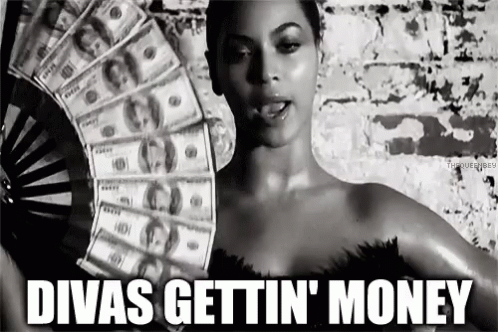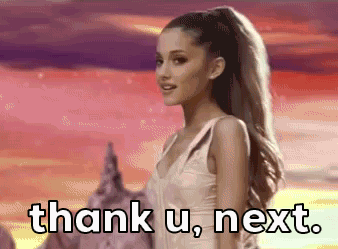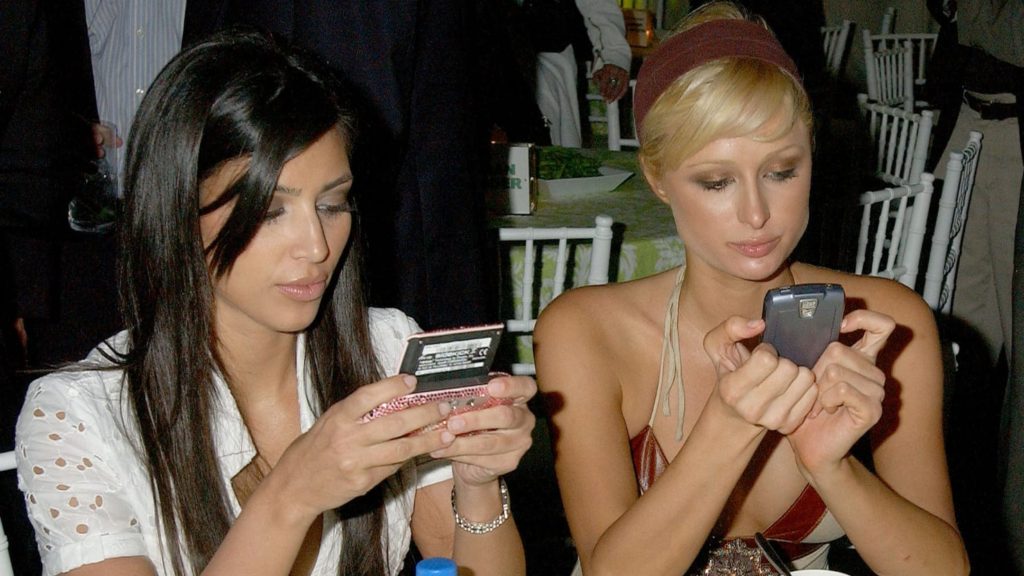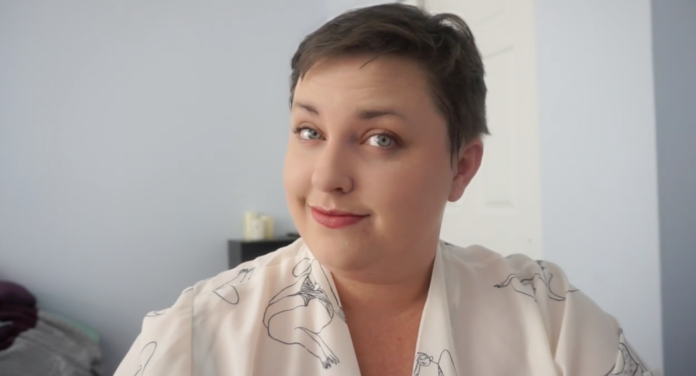Hey there! This post contains affiliate links. Using my links means I earn a commission, which helps me create more rad content. More on affiliates here.
About a month ago, I asked folks on Instagram what kind of career questions/issues they were having. (I love the “Questions” feature on Instagram, don’t you??)
And the most popular response, BY FAR, went something like this, “I don’t know how to achieve my goals – I don’t know what I should be doing NOW!” The second most popular? “I don’t know what I want to do with my life.”
WHEW. Those are 2 mega important questions.
So I filmed this YouTube video, where I broke down advice for these two groups of people (there is some overlap!).
BUT WAIT! If you hate watching videos, I’ve shared the transcribed text below:
Why I’m Qualified
Soooooo before giving any advice or insight, I want to talk about why I’m even qualified to be discussing this! I started working as what’s called a “Headhunter” around 2011-2012. Now a headhunter sounds like a cannibal serial killer kind of person.
A “headhunter”?
A “headhunter” is really just a recruiter. Generally a headhunter is somebody who is hired by an organization or a company to go find candidates for an open job position.
And in the course of “headhunting” I would interview candidates. I would talk to them about the kind of things that they were looking for, and I would also strategize and plan with the companies on the kind of candidates they were looking for.

SO. MANY. RESUMES.
I saw hundreds (actually, thousands) of resumes, completed I don’t-want-to-know-how-many hours of interviews, etc. Because I have this really unique insight into what companies are looking for and what applicants were looking for, and where problems in communication happened… it gave me this really unique insight into career planning.
I just started working as a career coach, because people were showing up and wanted to hire me. Then in 2016 I officially launched my website and shared my offering.
Two Career Planning Groups
When it comes to career planning there are two kinds of people.
The first group are people that have s big longterm goal. They tell me, “I want to achieve THIS HUGE THING, but I’m not exactly sure what the steps are between where I am and where the goal is. So, what do I gotta do in between?”
The second group of people are people that say, “I don’t know what to do. Bri!” I get on coaching calls with these folks and they start crying, because they’re so overwhelmed with options.
So, I’ve broken this post into advice for these 2 groups. Some of the advice is applicable to both groups. ABOVE ALL, this advice is ACTIONABLE. I’m not here to get you jazzed up, only to have you be crestfallen once you realize you don’t have an actual to-do list.

Group #1: How do I get there?
Let’s talk about those people who have a big dream or goal. They know where they want to go, but they don’t quite know how to plan to get there. Right?
There might be major milestones, but the smaller next steps can be really hard to figure out.
Introducing Career Mapping
The first thing you’’ll do is what I call “Career Mapping.” This is where you go into the wild land of the internet and you find people who have done what you wanna do.
And then, all thanks to the internet, you’re going to make a timeline of their career. You’ll research when they started doing this work, the different milestones that they hit, the different things that they tried, etc.
GET CREEPING!!

This is not super generic stuff, like listing one thing a year. You want to get as granular as you can! And thanks to the search function of Google News you can actually search someone’s name and a year and see what transpired for them in that year.
Ex:
- “Serena Williams training 2007”
- “Tamora Pierce year published first book”
- “Christian Siriano year of diffusion Line”
- “Mary Lambert first EP”
I’ve done this for a lot of fashion professionals from Vivienne Westwood to Christian Siriano, Becca McCharen-Tran, etc.

I’ve also done this for bloggers, like Nicollete Mason, Gabbi Gregg, et al. You don’t want to just focus on the big celebratory moments.
Ask yourself: What were they doing in the month that led up to a breakthrough? The year before? What kind of content were they creating?
Can you find podcast interviews, magazine interviews, blogs about what they were doing at that time? Look at Wikipedia, tumblr, Pinterest, etc. Go onto every type of website or platform you can think of and create a timeline of their career.
Creating The Actual Map
Some people compile info on poster board, some people create a super long google doc, etc. However you want to do it works!
For me, questions I asked myself were things like:
- When did they open their line?
- When did they switch companies?
- When did they launch their own consulting service?
- When if they went back to school and for what?
- Did they leave school? Why did they leave school?
- What contacts did they make and when? When/where did they meet key mentors and collaborators
The Timeline is a MAP
Once you have the timelines, you can analyze how they got to where they are. How can you implement the strategies they used? What kind of people do you need to meet? Where do you need to go (online or IRL)?
Need More Direction? You can hire your heroes for an hour!
The people you chose are super successful. They’re probably consulting. Because uber successful people consult. That’s just how it works!
And if you’re consulting you can be hired for an hour.
Instead of only looking at the internet trail, get on the phone with your heroes to learn how they did it. Send them an email!! In it, you’ll start with how much you appreciate their work, and get SPECIFIC. Not just, “You’re body of work is amazing!!” Share specific things that they’ve done or accomplished that have inspired you.
In the second paragraph you’re gonna ask if they do one-off hourly consulting with people, aaaand ask if you can hire them for an hour.
Yes, hire them. Do NOT ask: “Can I pick your brain?”
Super successful people have folks blowing up their email inboxes, Twitter DMs, et cetera, all the freaking time. There’s only so much time that your heroes can dedicate to coffee chats and brain pickings. Many successful people say no to everyone on principle. Deciding who to help is too hard, so they politely ignore or turn down everyone.

BUT, if you show up offering to compensate for the energy that they’re gonna spend on you, perfect. That shows respect. That shows you really give a hoot about what they know.
Now some people if they’re super successful will come back with like, “I charge $5000 dollars an hour!” and that might now be doable for you.
If that is the case then thank them for their time and say, “Hey ,I’ll reach out when i have those kinds of funds to spend on this.”
The investment is WORTH IT.
The thing is: If you can get on the phone with somebody who has “made it,” they can give you the cheat codes or invaluable information – stuff that they’re not sharing with journalists or on blogs or on podcasts that’s invaluable.

AND you end up on their radar as somebody who’s really showing up to do the work, who isn’t just talk but is about action.
ALSO ONE MORE THING: When you show up for those phone calls, make sure you have really specific questions. Figure out where you’re getting stuck/need help, and ask about the specific issues you’re facing.
The call should not be about pampering their ego. You want to be getting good information out of it, so make sure you show up with really good questions.
YOU GOTTA TRY NEW THINGS
The last thing for Group #1, which also applies to Group #2, is that at a certain point you have to try things. You just have to throw things at the wall, and the more iterative that you are, the more versions that you try, and the faster that you try things, the faster that some things will work and the faster some things will fail and you can take that information and act on it.
The problem that people really have is when they’re like, “oh, I have these dreams but i don’t know how to get there…” is that they’re NOT TRYING ANYTHING, looking for the perfect path.
You have the internet, you have consulting available to you. You have personal development books.
Somebody out there has done what you want to do (unless you are trying to unlock time travel in which case I can’t help you). But for 99.99% of people watching this, somebody has done what you want to do and your job is go figure out how they did it and duplicate it.
Group #2: I don’t know what I want to do!!
These folks feel super overwhelmed. There are MANY options and paths, and they don’t know which one to pick.
The first thing I’d like to share is some advice that I actually got after my freshman year at Stanford. I went on a research trip to the Peruvian Amazon, and some Stanford alumni went with us. We were talking about what we wanted to do, and (of course) the trip had a lot of freshmen who who were like, “I don’t know what I’m doing!”
These successful alumni talked with us about it. Some of the best advice I received from one of them is the “Lily Pad Parable.” (This is a bit hard to explain via written word, so you may want to watch the YouTube video for this!)
The “Lily Pad Parable” states that your life and career direction isn’t a this linear line or beautiful straight forward journey.

People just talk about their career direction as if it was super straightforward, because they’re looking back with hindsight. They create a narrative about their life, and oftentimes omit the shit that didn’t work.
But during the journey – it’s as if you’re a frog hopping on different lily pads getting to where you want to go.
Each lily pad is an experience or job. So, one lily pad could be one job, the next lily pad is the next job and then if you hop lily pads you’re switching industries or you’re switching jobs.

If you think of life in terms of lily pads, it makes it a lot less stressful to try to to plan longterm things. Because you can really only plan two-ish years in the future. You can and should eventually find a longterm goal, but you don’t need to see the whole trajectory right this moment.
The lily pad parable also makes it clear that even if you make the wrong decision, you’ll be okay. You can change course.
Test Career Paths Using the Career Map
Torn between different goals or career paths? Make a career map for each of them, so you can decide if you even want to do the work that that goal requires.
So, example, when I first showed up to college, I really thought I was going to be a foreign services officer.
I thought to myself, “I’m gonna be a diplomat! A badass lady politician. I’m gonna fight for women’s rights.”

Then as I learned more about the FSO program, and what it actually took to be a diplomat, I wasn’t as intrigued. “Uh— I don’t really know what I want to do — if I want to do ALL OF THIS to get there.” Things like, you can’t be political and share political statements about things. You have to be, you know, diplomatic. Aaaand “diplomatic” is not really a word people would use to describe me, right?
The second thing was tattoos. FSOs can’t have tattoos, and I wanted (still do) a bucketload of visible tattoos. Looking over those reasons, and a few others, made me say, “I’m out.”
What would it take to accomplish this goal?
When you’re creating the career map of what a trajectory could look like ask yourself:, What it would take from where you are NOW to get there? What courses, books, internships, shadow programs et cetera, would you have to utilize to get that job?
As you create different career maps, you’re going to find out something spectacular.
YOU WON’T BE DOWN FOR A LOT OF IT!

While you may love the end result, you’re not willing to make the sacrifices or do the work to get there. And that’s totally fine. It’s fun to fantasize, but if you’re not down to do the work, cross it off of your list! That leaves you bandwidth to dedicate time and energy to the tasks you are willing to do for another career.
Caveat: Don’t give into feelings of inadequacy
When you’re deciding not to tackle a career goal, I don’t want you to base it off of fear of inadequacy.
Notice when I was talking about doing diplomat stuff i didn’t say things like, “Aw I just don’t have the talent/creativity/skills to make this happen.” I made my decision based on static, unchangeable facts.
<< Be sure to subscribe to my weekly newsletter for more in-depth && actionable info!! >>
Sharing political opinions in public, tattoos, my own personality, etc – these things aren’t going to change! So when you’re crossing things off your career potential list, do so because you’re not willing to make the sacrifices or do the work that will get you to the end goal. Don’t let imposter syndrome keep you from getting in the ring.
Dip Your Toe In
Next, you’re gonna figure out how you can get experience in those fields while still paying your bills. So for some people that could be things like taking an online course or there are courses through top universities that are free called MOOCs. You could enroll in an online course to test out different industries or skills you need to acquire.

Example: Maybe you want to learn how to code to become a software engineer. Go sign up for introductory computer science from MIT MOOC, and if you can stick with it and you like it – then good! If you don’t, then cross it off of your list of potential careers!
Another example: Let’s say you are interested in working at a magazine, because you want to be an editor. You might not be able to quit your job and go do an unpaid internship. But what you could try is pitching freelance articles to magazines, following writers on twitter and editors, and you could even experiment with maybe creating your own quarterly publication just to get experience and see if you like it.
Utilize your social network
Another thing that can be really valuable is asking for help on social media. Say, “Hey, I’m really interested in becoming a mechanic/painter/project manager/etc. Does anybody know anybody in this field that you could connect me with? I would love to hire this person as a consultant for an hour, or take them to coffee.”

And I really want to emphasize the power of consulting. When you show up and you want to compensate people for their resources, for the time that they’re spending on you, they’re more likely to take up your cause and mentor you longterm. A coffee chat for “brain pickings” is a drain, and is generally a one-time thing.
Create Your Own Shadow Program
From there, see if you can shadow them for the day. “Shadowing” is not just for people that are in their twenties. Shadowing can be a really great thing for people of any age to see if they like the day-to-day.
- Do you like the personality types that are in the industry you’re interested in?
- What things do they do throughout the day?
- How much travel is involved?
- Do they have a life outside of work? Do you want a life outside of your work?
Virtual Assistants FTW
One of the best things that I’ve seen clients do is actually become virtual assistants for people who are in the career that they want. Reach out to these people and inquire about working as a VA (virtual admin).
A VA has the keys to the kingdom right? You can see what’s going on in the back end in the day to day.
Keep in mind, Kim Kardashian was Paris Hilton’s Assistant.

Alrighty!
This post was QUITE a doozy, and we’ve barely scratched the surface!!. If you’re looking for help with your career, reach out to me here.
If you’d like to keep in touch, be sure to subscribe to my weekly newsletter, so you’ll stay up-to-date on new fashion brands and business content!
NOTICE: This post may contain affiliate links, from which I earn a small commission. All opinions are my own, and I only recommend products I believe in.












